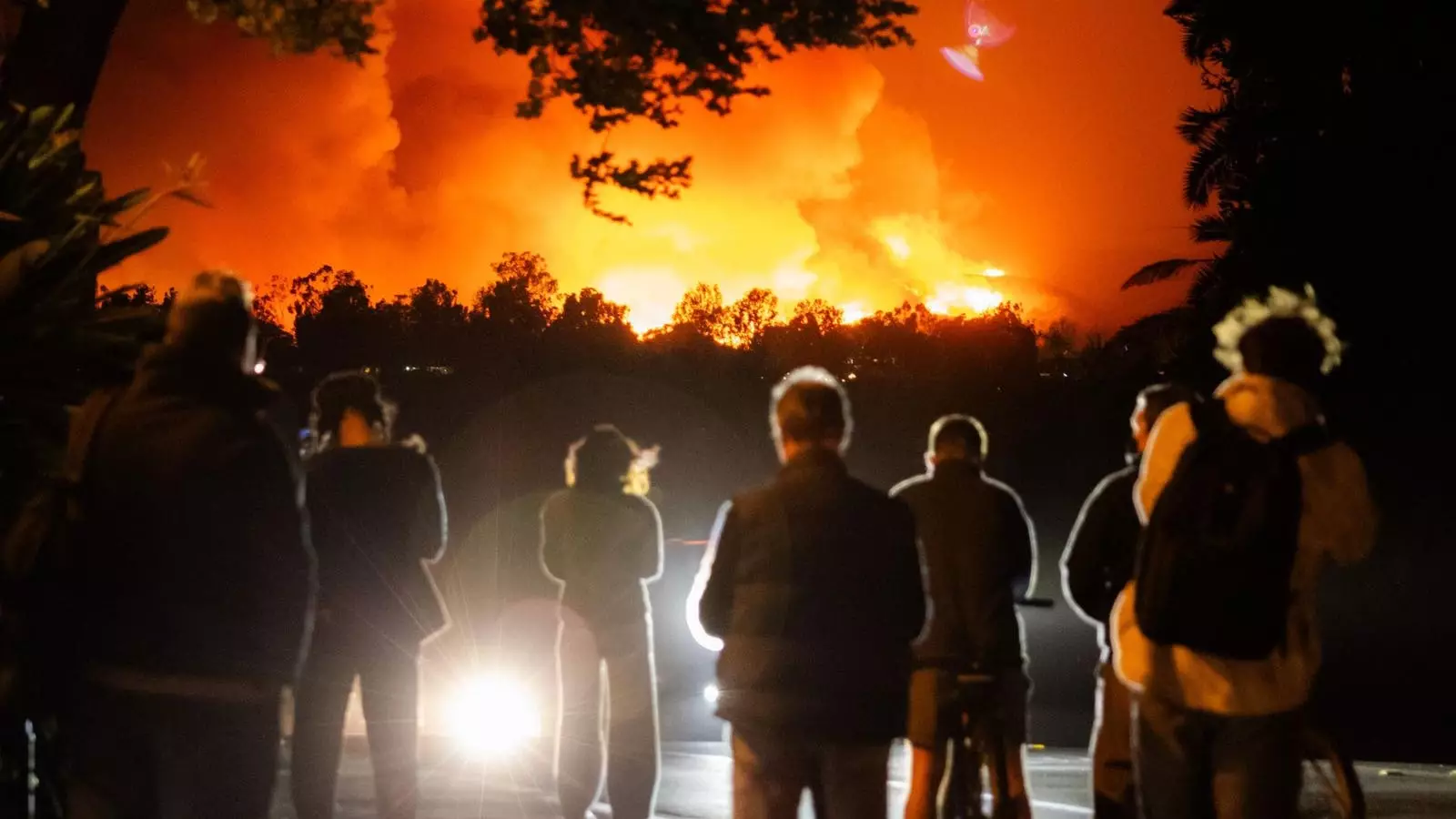As we transition into 2025, Southern California has already been struck by devastating wildfires, overshadowing the hopes and aspirations that typically accompany a new year. The juxtaposition of festive expectations against the harsh reality of raging fires highlights a fundamental truth about our current climate crisis: it is relentless and indifferent to human timelines or resolutions. While wildfires are an inherent part of the Southern Californian landscape, their occurrence in wintertime serves as a stark reminder that climate change is rapidly accelerating the frequency and intensity of these natural disasters.
Wildfires are traditionally part of a rejuvenation cycle within ecosystems, playing a critical role in maintaining ecological balance. However, the unprecedented rise in winter fires signals a worrying trend that many environmental scientists have been forecasting. These fires are not merely products of natural processes; they are exacerbations of a planet grappling with humanity’s impact. The emotional toll on the communities affected by these fires is immeasurable. As someone who appreciates the vibrancy of Los Angeles, it is particularly heart-wrenching to witness the destruction of a city so rich in culture and diversity.
Despite the overwhelming despair, moments of hope emerge from the ashes. The spirit of community in Los Angeles has shone brightly during this crisis, as individuals and organizations rally to support those in need. From chefs providing meals for the unhoused to grassroots mutual aid networks mobilizing resources, these acts of kindness embody the strength found in community connections. This collaborative effort serves as a poignant reminder that, during times of crisis, our neighbors can be our greatest allies.
The resilience displayed by affected communities inspires a multifaceted response to the disaster. Acts of solidarity not only help provide immediate comfort to those suffering but also pave the way for long-term healing. In this sense, every effort counts. Those who feel compelled to assist can contribute in various ways, be it through monetary donations or volunteering time to local aid initiatives. Organizations like World Central Kitchen and the Los Angeles Regional Food Bank are vital lifelines during such crises, working tirelessly to ensure that food and resources are distributed to those experiencing hardship.
Facing the Broader Implications of Climate Change
As we confront the immediate fallout from the wildfires, it’s essential to also consider the larger implications of our changing climate. The correlation between rising temperatures and increasing instances of fire is irrefutable, as is the link between climate change and food insecurity. These issues are intrinsically tied; as the environment deteriorates, agricultural systems falter, exacerbating hunger and scarcity.
To address these pressing challenges, individuals must engage in discussions about the underlying factors of climate change, exploring topics such as corporate practices and systemic corruption in the food and agriculture industries. Initiatives that shed light on these realities can empower communities to advocate for sustainable practices and seek accountability from powerful entities. By participating in events and dialogues aimed at raising awareness, we can collectively nurture a more informed society that is better equipped to tackle the complexities of climate disruptions.
The onset of 2025 is not just marked by destruction but also by the potential for transformation. While the fires continue to delineate the boundaries of despair, they also serve as a catalyst for conversations about resilience and change. The future hinges on our ability to learn from these experiences and adapt to meet the challenges posed by climate change, not just as individuals but as interconnected communities.
As we navigate this tumultuous landscape, let’s remember the takeaways from our recent trials: compassion, collaboration, and a commitment to seeking truth in the face of adversity. It is through these lenses that we can envision a brighter future—one where we are not merely surviving but thriving, no matter the circumstance. The journey forward demands our collective effort, informed awareness, and unwavering support for one another, fostering a sense of unity amidst uncertainty.
In these critical times, how we respond can define not just our cities but ultimately, our planet.

